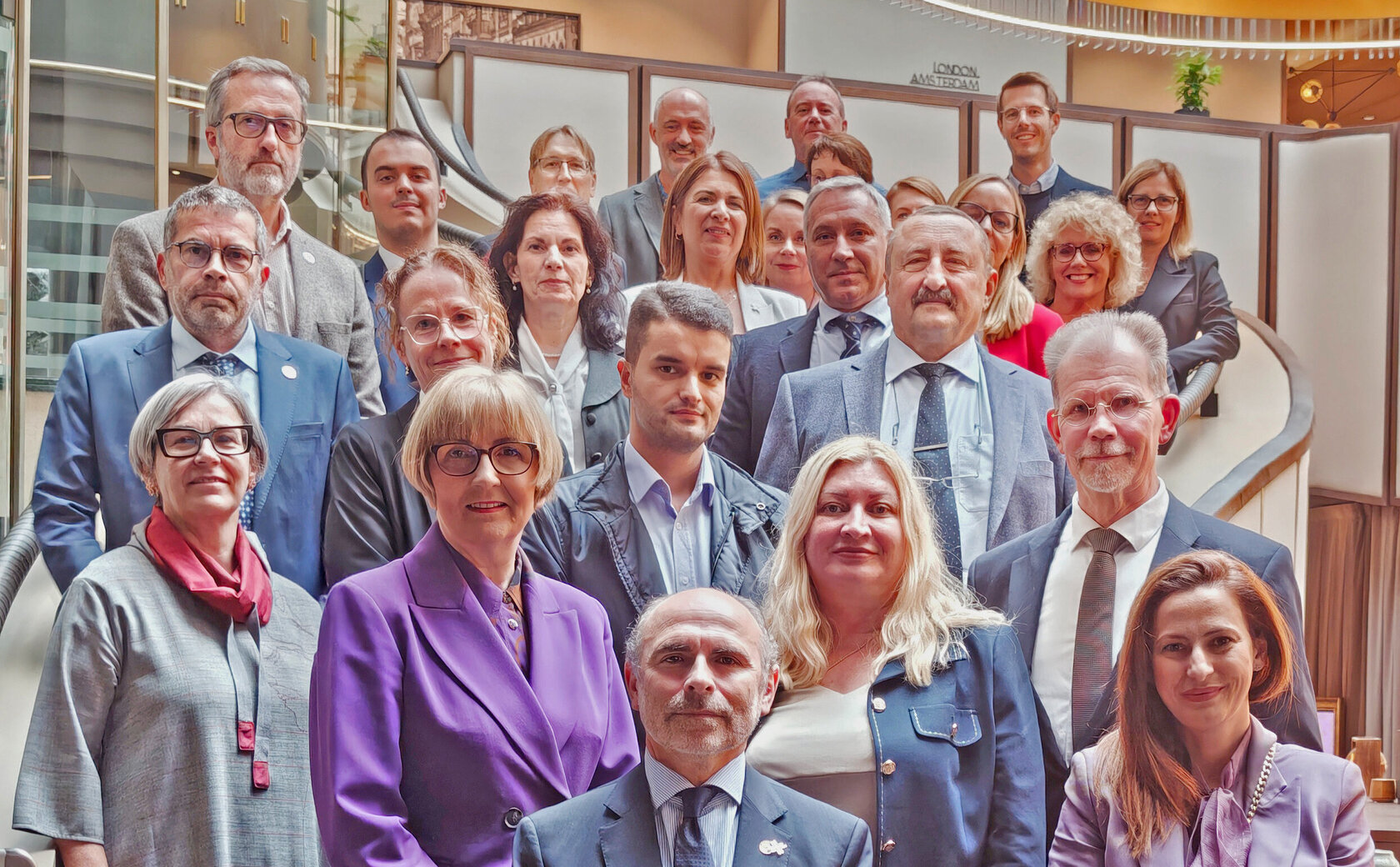October 17, 2025
On October 8 and 9, 2025, the leaders of the ten partner universities of the INGENIUM European University Alliance met in Brussels to make key decisions for the future of the alliance. The focus was on establishing its own legal entity in the form of a “European Grouping of Territorial Cooperation” (EGTC). With this decision, the process can now begin in the university committees as well as at the regional and national levels – a clear signal of the partner universities' joint commitment to a next-generation European university.
Karlsruhe University of Applied Sciences (HKA) was represented by President Prof. Dr. Rose Marie Beck. For her, the focus is on HKA actively contributing to shaping the European Education Area through its membership in INGENIUM. For HKA, this means broadening its range of courses beyond its own university boundaries. “As a university of applied sciences, we are particularly committed to standing up for Europe and European integration,” emphasized President Beck. “INGENIUM opens up the opportunity for us to network in a common European space in teaching, research, and transfer, while at the same time contributing our local strengths.”
HKA sees itself as a “real-world laboratory of possibilities”: a university that combines excellence in applied science with responsibility for a sustainable, livable future. Alliance membership is a strategic task for the future that should be permanently anchored in teaching, research, and transfer. The central question is: How can students be trained to deal with technologies and challenges that do not yet exist today? Cooperation with companies, regional practical perspectives, and problem-oriented learning are key levers for this.
In addition to the Alliance Council, an exchange took place with representatives of the European Commission and higher education organizations, including Maria Mecenero (DG Research & Innovation), Olga Wessels (ECIU/FOREU4ALL), Thomas Jørgensen (European University Association), and Ioana Dewandeler (DG Education & Culture). Among other things, the following topics were discussed:
Embedding in the “Union of Skills”
Implementation of the European Degree Label
Integration of regional ecosystems
Promotion of interdisciplinarity and transdisciplinarity
Visibility and sense of belonging of students within a European university
The meeting in Brussels marked a decisive step forward: The INGENIUM University continues to take shape, and with it grows the opportunity to make European higher education practical, networked, and future-oriented.
For more information on current INGENIUM calls and offers, visit www.h-ka.de/ingenium.
